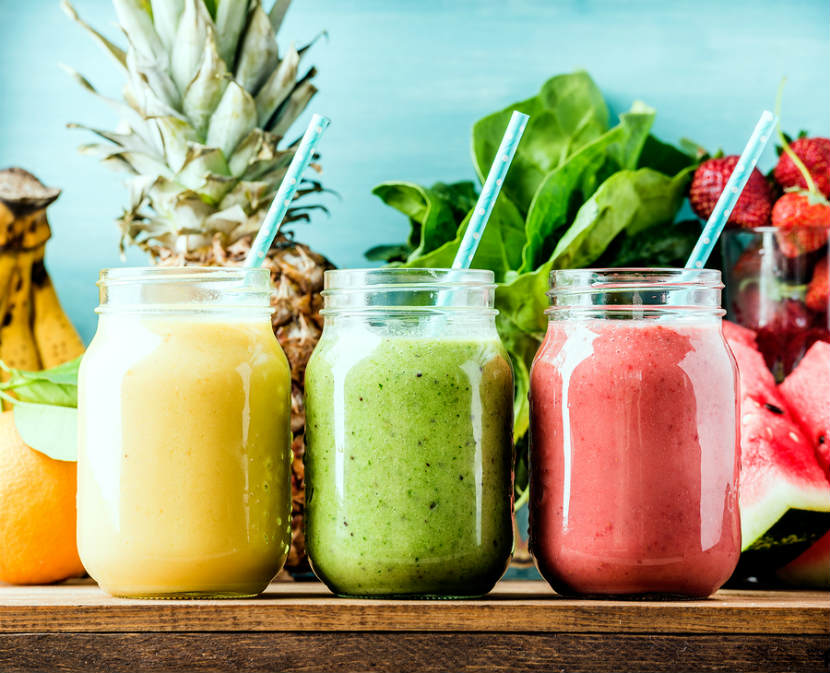
Choosing a healthy beverage can sometimes be hard! There are so many drinks to choose from. It can also be deceiving. What may seem healthy may not be. Read on to find out some of the healthiest ways to satisfy your thirst.
Make water your first choice
-
Drink water regularly for a calorie-free way to satisfy your thirst.
-
Keep a jug of cold water in the fridge.
-
Pack a reusable water bottle for school, work and sports.
-
Top up your reusable water bottle with ice before leaving home.
-
Keep a glass of water near you at work. You tend to drink more if it’s right in front of you.
-
Order water more often when eating out. At fast food restaurants, ask for a cup of water. It is often no charge.
-
Give your water some extra flavour by adding cucumber slices, berries, lemon or lime wedges, apple chunks or orange segments.
Drink milk or milk alternatives
Milk and fortified soy beverages are healthy ways to satisfy your thirst. They are good sources of protein, calcium and vitamin D. Enriched rice and almond beverages contain calcium and vitamin D but are low in protein. They are still better choices than juices, sweetened fruit beverages and carbonated beverages like pop.
-
Have a glass of cold low fat milk or fortified soy beverage as a mid-morning snack.
-
Try a latte with low fat milk or fortified soy beverage.
-
Make a smoothie with enriched rice or almond beverage and your favourite fruit.
-
Try a Rhubarb Smoothie or Shake or a Ground Up Frog Smoothie.
Facts on fruit juice and fruit beverages
Fruit juice and fruit beverages should be limited. Many of these beverages contain a high amount of sugar which can lead to weight gain. Fruit juice, even labelled as ‘no sugar added’ still contains a high amount of sugar. Eat a piece of fruit instead of drinking juice. Whole fruits have the added benefits of fibre and other nutrients not found in juice.
If you drink juice, choose ones that say “100% juice” on the package. If you choose to offer 100% fruit juice to your children, make sure they don’t get too much. Remember that children do not need juice to be healthy.
-
Infants, toddlers and children should not have more than 125 to 175 mL (4 to 6 oz) of juice per day. Never offer juice in a bottle.
Fruit punch, fruit drink, fruit cocktail and fruit flavoured beverages contain water, flavouring and added sugar. They offer no nutrition. It is healthiest to limit or avoid these products.
Facts on carbonated beverages like pop
Carbonated beverages have a very high amount of sugar. They have no nutrients like vitamins and minerals. Limit or avoid drinking carbonated beverages.
Facts on sports drinks
Your body does not need sports drinks if you are not exercising. These drinks are specially designed for people that are exercising and sweating a lot. If you drink sports drinks when you are not exercising, you will simply be increasing your sugar intake.
Certain people can benefit from sports drinks when doing physical activity. Not everyone needs sports drinks when exercising. Talk to your doctor or dietitian to find out if you should be using a sport drink when you exercise.
Facts on energy drinks
Energy drinks claim to “make you more alert and give you energy.” Most have caffeine as an ingredient. Like pop, they often contain high amounts of sugar. Certain people like children and women who are breastfeeding or pregnant should not use energy drinks. Read more about energy drinks here.
Bottom line
Choosing a healthy beverage can be challenging. Choose water most often and try milk or a milk alternative like soy beverage to satisfy your thirst. Juices, beverages like pop, and energy drinks should be limited or avoided since they are higher in sugar and can lead to weight gain. Talk to your doctor or dietitian to find out if you should be using a sport drink when you exercise.
You may also be interested in:
Facts on Fluids
Facts on Caffeine
Last Update – May 25, 2021